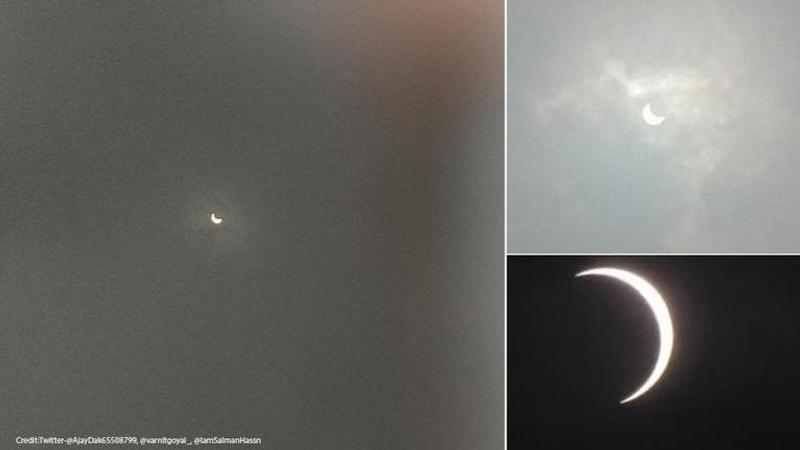Published 12:17 IST, June 21st 2020
Netizens share solar eclipse images as world witnesses rare event of summer solstice
As the world is witnessing Solar Eclipse on June 21, it is on the same day as the summer solstice, the longest day of the year after which the days begin waning

As the world is witnessing Solar Eclipse on June 21, it is on the same day as the summer solstice, the longest day of the year after which the days begin waning again. This “Annular Solar Eclipse” has also been termed as the “ring of fire” and netizens from across the globe are sharing the images of the eclipse.
The eclipse started at 9:15am and will be visible until 3:04pm with the maximum eclipse taking place at 12:10pm. It will be visible from Asia, Africa, the Pacific, the Indian Ocean, parts of Europe and Australia. Check out some of the eclipse images captured by the netizens:
Cautionary measures
One must be careful when it comes to watching the sky during the eclipse with bare eyes. The rays of the sun can permanently damage the tissues of the eyes and the Ultra Violet (UV) radiation can also weaken the outer layer of the eye and lead to cataract development.
According to NASA when 99 per cent of the sun's surface is covered during the partial phases of a solar eclipse, the small visible part of the sun can still burn the retina the eyes hence it is highly recommended not to watch the eclipse with bare eyes. Avoid the use of sunglasses, goggles, exposed x-ray sheet or lampblack over glass they are not safe and can lead to permanent vision loss and can damage the eyes.
Updated 12:17 IST, June 21st 2020




